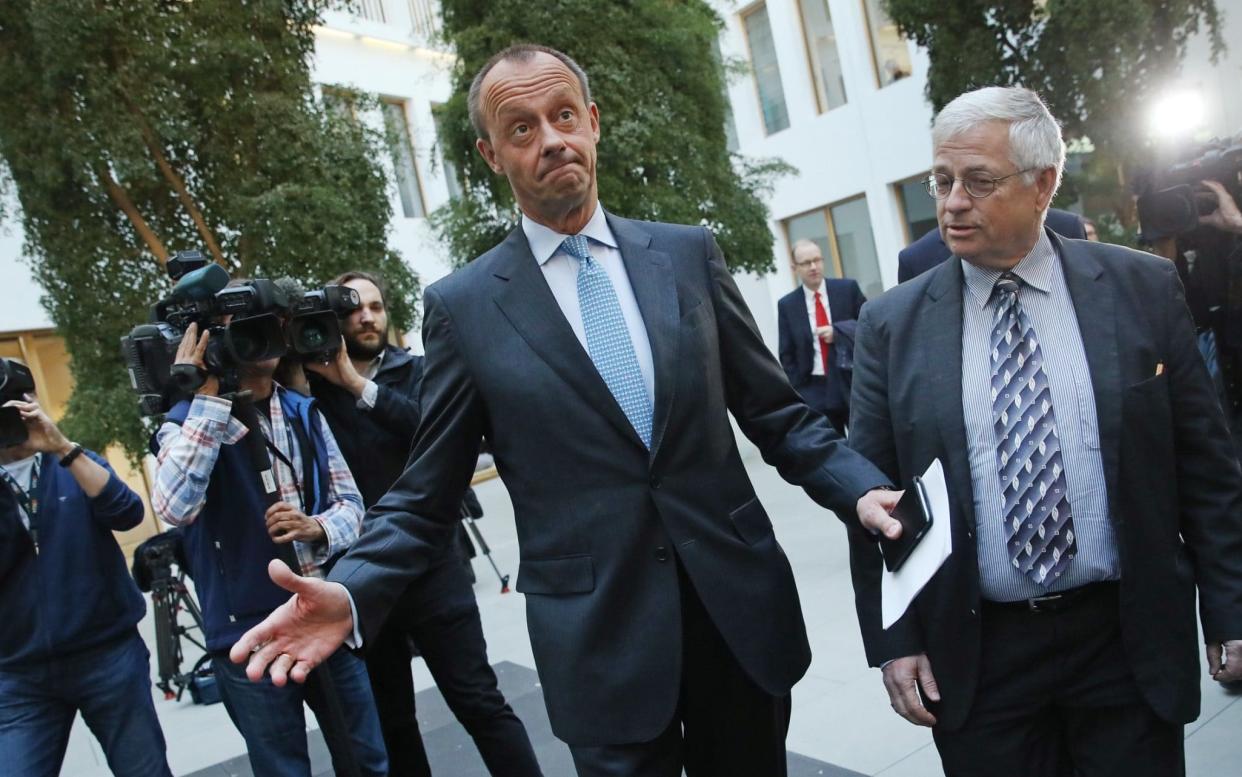Despite admitting he earns €1m, Merkel challenger Merz defends claim he is middle class

Friedrich Merz, one of the frontrunners in the race to succeed Angela Merkel as leader of her party, has admitted he earns "around one million euros" a year, days after claiming to be middle class.
In an interview published on Sunday, Mr Merz told Bild am Sonntag newspaper he earns around €1 million (£900,000) per annum in pre-tax income.
The admission comes after he faced ridicule for asserting earlier in the week that he is upper-middle class.
Mr Merz, 63, has spent almost a decade sitting on the advisory boards of firms such as BlackRock, the world’s largest fund manager. He has previously dodged questions from journalists regarding his income but is known to own two private jets.
Mr Merz’s modest description of his place in German society was met with mockery from newspapers and satirists.
Der Spiegel argued that Mr Merz was either hiding the true extent of his wealth for tactical reasons or was unaware of just how rich he was in comparison with average Germans.
Germany’s most popular satirist, Oliver Welke, said: “My rule of thumb is if you have your own jet you’re not middle class.”

But Mr Merz defended himself, saying: “I took on values from my parents that are typical of the middle classes: hard work, discipline, respect and the knowledge that you give something back to society when you can afford it”.
He also told of how he worked his way up from “counting every Deutsche Mark” when he and his wife had their first child while he was still a student.
Mr Merz led the Christian Democratic Union (CDU) in the Bundestag from 2000-02 but completely withdrew from politics in 2009 after losing an inner-party power struggle with Mrs Merkel.
He is currently taking part in a nationwide debating tour with the two other frontrunners for the position of CDU chairperson, Annegret Kramp-Karrenbauer and Jens Spahn.
Mrs Merkel announced she would give up the party chair last month after a string of disappointing state election results.
It is widely assumed that the winner of the race will be the CDU’s candidate to take over as Chancellor when Mrs Merkel retires.
Critics claim Mr Merz is too closely linked to big business to represent the whole spectrum of CDU voters, many of whom are wedded to the idea of the soziale Marktwirtschaft - the combination of a free market with a robust welfare system.
Polls suggest Mr Merz trails Merkel-loyalist Ms Kramp-Karrenbauer in popularity among party members.

 Yahoo News
Yahoo News 
